Filter by
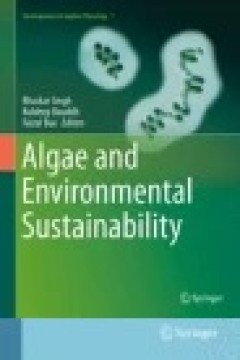
Algae and Environmental Sustainability
This book presents the dynamic role of algae in a sustainable environment. Two major aspects, namely bioenergy and bioremediation, have been elaborated in various chapter contributed by scientists and teachers from different geographical areas throughout the world. Algal biofuels is an emerging area of equal interest to researchers, industries, and policy makers working or focusing on alternati…
- Edition
- Ed. 1
- ISBN/ISSN
- 978-81-322-2641-3
- Collation
- XVIII, 181
- Series Title
- Developments in Applied Phycology
- Call Number
- 576 ALG a
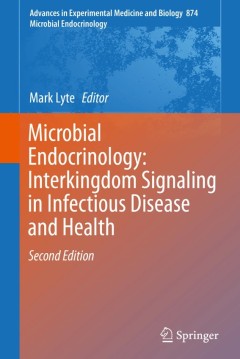
Microbial Endocrinology: Interkingdom Signaling in Infectious Disease and Health
This new edition highlights the numerous advances made in the field of microbial endocrinology over the last five years. Prominent among these new topics featured is the emergence of the microbiota-gut-brain axis and the role it plays in brain function. Specific focus is given to the role of microbial endocrinology in the evolutionary symbiosis between man and microbe as it relates to both heal…
- Edition
- 1
- ISBN/ISSN
- 978-3-319-20214-3
- Collation
- XIII, 374
- Series Title
- Advances in Experimental Medicine and Biology
- Call Number
- -
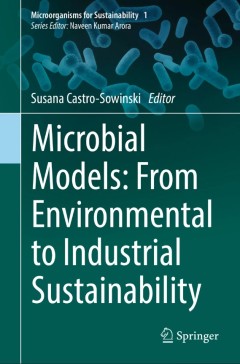
Microbial Models: From Environmental to Industrial Sustainability
This book describes selected microbial genera from the perspective of their environmentally and commercially sustainable use. By focusing on their physiology and metabolism and combining historical information with the latest developments, it presents a multidisciplinary portrait of microbial sustainability. The chapters provide readers descriptions of each genus in the form of microbial model…
- Edition
- 1
- ISBN/ISSN
- -
- Collation
- -
- Series Title
- -
- Call Number
- -
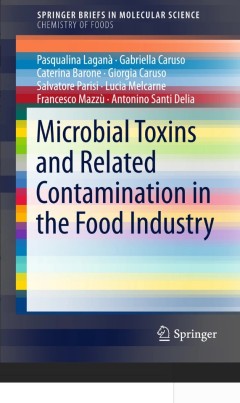
Microbial Toxins and Related Contamination in the Food Industry
This Brief concerns the chemical risk in food products from the viewpoint of microbiology. The “Hazard Analysis and Critical Control Point” (HACCP) approach, which is applied for this purpose, is dedicated to the study and the analysis of all possible dangers by food consumptions and the related countermeasures with the aim of protecting the health of consumers. This difficult objective is …
- Edition
- 1
- ISBN/ISSN
- 978-3-319-20558-8
- Collation
- VI, 101
- Series Title
- SpringerBriefs in Molecular Science
- Call Number
- -
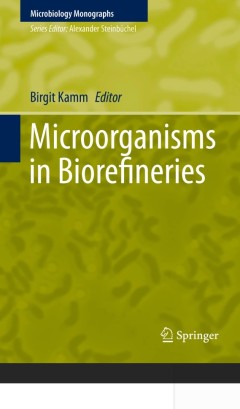
Microorganisms in Biorefineries
The book describes how plant biomass can be used as renewable feedstock for producing and further processing various products. Particular attention is given to microbial processes both for the digestion of biomass and the synthesis of platform chemicals, biofuels and secondary products. Topics covered include: new metabolic pathways of microbes living on green plants and in silage; using lig…
- Edition
- 1
- ISBN/ISSN
- 978-3-662-45208-0
- Collation
- X, 369
- Series Title
- Microbiology Monographs
- Call Number
- -
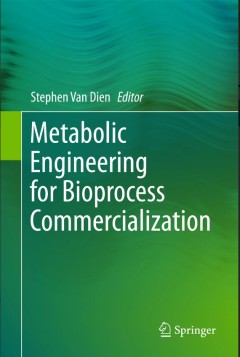
Metabolic Engineering for Bioprocess Commercialization
This volume reviews the current metabolic engineering tools and technologies from a practical point of view, and guides researchers as they overcome challenges at various stages of organism and bioprocess development. Microbes have been engineered to produce a variety of industrial products such as fuels, basic chemicals, fine chemicals, nutritional supplements, and pharmaceutical intermediates…
- Edition
- 1
- ISBN/ISSN
- 978-3-319-41964-0
- Collation
- V, 122
- Series Title
- -
- Call Number
- -
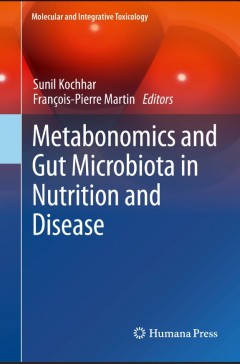
Metabonomics and Gut Microbiota in Nutrition and Disease
This book provides a comprehensive overview of metabonomics and gut microbiota research from molecular analysis to population-based global health considerations. The topics include the discussion of the applications in relation to metabonomics and gut microbiota in nutritional research, in health and disease and a review of future therapeutical, nutraceutical and clinical applications. It also …
- Edition
- -
- ISBN/ISSN
- 978-1-4471-6538-5
- Collation
- XVI, 375
- Series Title
- Molecular and Integrative Toxicology
- Call Number
- -
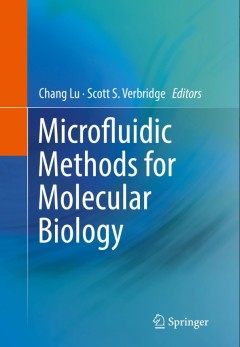
Microfluidic Methods for Molecular Biology
This book covers the state-of-the-art research on molecular biology assays and molecular techniques enabled or enhanced by microfluidic platforms. Topics covered include microfluidic methods for cellular separations and single cell studies, droplet-based approaches to study protein expression and forensics, and microfluidic in situ hybridization for RNA analysis. Key molecular biology studies u…
- Edition
- 1
- ISBN/ISSN
- 978-3-319-30017-7
- Collation
- XII, 376
- Series Title
- -
- Call Number
- -
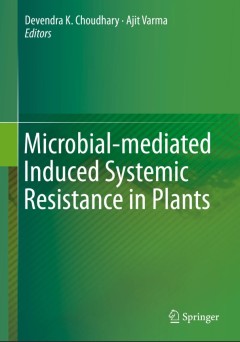
Microbial-mediated Induced Systemic Resistance in Plants
With a focus on food safety, this book highlights the importance of microbes in sustainable agriculture. Plants, sessile organisms that are considered as primary producers in the ecosystem and communicate with above- and below-ground communities that consist of microbes, insects, and other vertebrate and invertebrate animals, are subjected to various kinds of stress. Broadly speaking, these can…
- Edition
- 1
- ISBN/ISSN
- 978-981-10-0387-5
- Collation
- X, 226
- Series Title
- -
- Call Number
- -
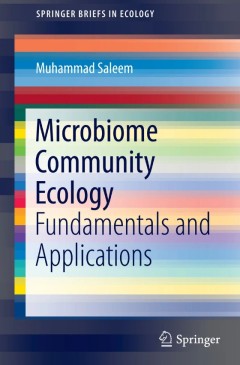
Microbiome Community Ecology
This book reviews the mechanisms, patterns, and processes that regulate prokaryotic diversity through different habitats in the context of evolutionary and ecological hypotheses, principles, and theories. Despite the tremendous role of prokaryotic diversity in the function of the global ecosystem, it remains understudied in comparison to the rest of biological diversity. In this book, the autho…
- Edition
- 1
- ISBN/ISSN
- 978-3-319-11664-8
- Collation
- VIII, 152
- Series Title
- SpringerBriefs in Ecology
- Call Number
- -
 Computer Science, Information & General Works
Computer Science, Information & General Works  Philosophy & Psychology
Philosophy & Psychology  Religion
Religion  Social Sciences
Social Sciences  Language
Language  Pure Science
Pure Science  Applied Sciences
Applied Sciences  Art & Recreation
Art & Recreation  Literature
Literature  History & Geography
History & Geography